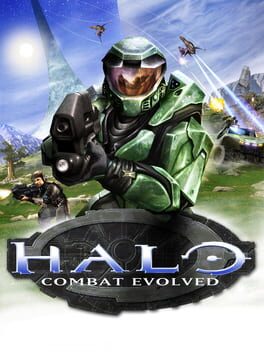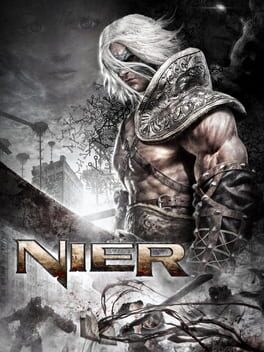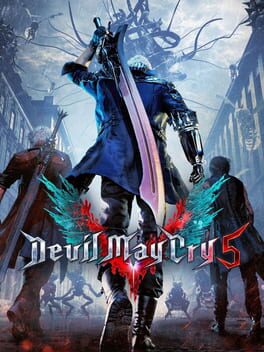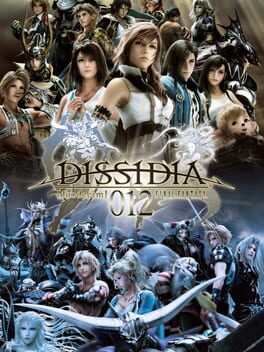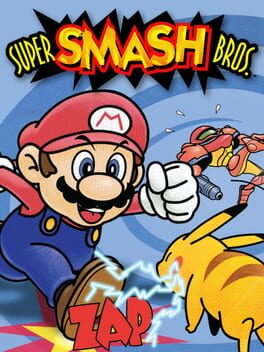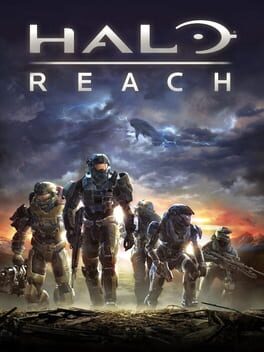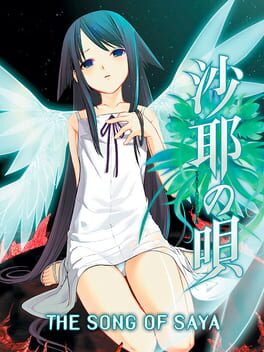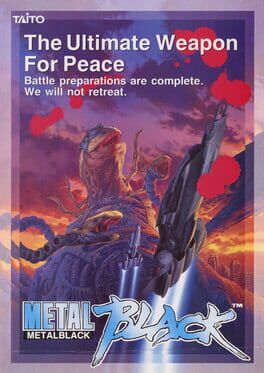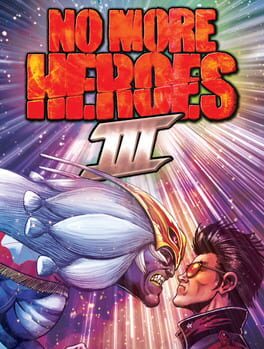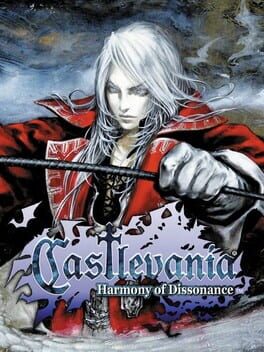romdocitizen
2001
What if the US occupation of Afghanistan but the Taliban are aliens who only communicate with grunts/guttural laughter/high-pitched Flea in THE WILD THORNBERRYS gibbering, and Afghanistan itself is the weapon of mass destruction, and it's all of the worst aspects of ALIENS (which is most of ALIENS) and none of the good but with zombies, and we just make everything after "The Silent Cartographer" a beyond tedious grind with copy-pasted corridors so we can shove this thing out the door on time.
tl;dr JockJamz MARATHON, or the BIOSHOCK to that game's SYSTEM SHOCK. Some interesting/compelling production design and gameplay dynamics throughout (hopping in a Warthog with a buddy is all-time and the assault rifle feels great) but otherwise utterly fucking dire even when playing co-op with a friend, not to mention grossly jingoistic and racist without the polish or design muscle to make it worth fucking with. Just skip to the sequel imho.
tl;dr JockJamz MARATHON, or the BIOSHOCK to that game's SYSTEM SHOCK. Some interesting/compelling production design and gameplay dynamics throughout (hopping in a Warthog with a buddy is all-time and the assault rifle feels great) but otherwise utterly fucking dire even when playing co-op with a friend, not to mention grossly jingoistic and racist without the polish or design muscle to make it worth fucking with. Just skip to the sequel imho.
2010
2009
2019
A marriage of 90s wuxia spectacle and dynamic combat to 00s wuxia graceful weightlessness of movement realized in play with a level of sheer craft and maniacal mechanical tightness unlikely ever to be seen again in any context as accessible to players who are not Fighting Game People (and that includes Smash Bros., which has been a fighting game for longer than it was an arena fighter-cum-party game at this point, to its detriment). As close as any game I've ever played has come to genuine eternal replayability, and one I've been returning to off and on for more than ten years. It's worth your while to get a PSP/Vita in general, but it would absolutely be worth securing one just for this game alone, especially as the closing of the PS3/Vita PSN Store will banish this eternally to the realm of UMD or emulation-only. I've bounced off every Final Fantasy game I've ever attempted save this one (we'll see about FFXII), so I kinda do have to join the chorus of other reviews here in calling this the only good Final Fantasy game lol. Go seek this out if you haven't already, flashy arena fighters genuinely do not get better than this.
1999
The only Smash game actually accessible to a non-fighting game audience (in the skillset or lack thereof sense rather than abled/disabled sense), as great a party game as has ever been done (as to all appearances was Sakurai &co.'s original intention), and thus still the best and only Smash game of actual merit, and will continue to be so until Smash games (and fighting games in general) actually start to meaningfully teach players how to play them (no I have not played Under-Night's tutorial mode and I'm not going to unless you buy it for me go away lol).
2010
Worth playing for the "matte painting"/skybox work alone. By a considerable margin the best and most refined execution of the Halo formula I've played to date, kind of amiracle this series produced an Actually Good game considering the others I've played were garbo (CE and ODST) and Just Fine At Best (Halo 2).
2003
1991
2021
The thing about NMH1 is that it's only a "game about games" insofar as it's a game about labor (specifically wage labor) and the relationship between labor and gaming both materially and representationally. It's effectively a work of games crit aimed at the then-contemporary conventions of "open-world" game design as codified by Grand Theft Auto as a means of examining how thoroughly the medium of video games and the imaginations of the people who play them have been colonized by wage labor and "the grind" to the extent that even our supposed forms of play have taken on the form of work - the minigames are kind of odious and stupid because wage labor is odious and stupid, and gig work especially so. That so little has changed in the intervening 15 years and NMH1 still has just as much bite to it now as then is depressing to contemplate lol.
In addition, Travis Touchdown himself functioned there as a critique of a very particular kind of person/audience - specifically the "nerd" or "otaku" as a consumer, first and foremost, and chauvinist secondly. By extension, it's also a game with a more sharply defined notion of class than I usually see discussed - with the notable exception of Holly Summers, all of the game's characters are split into the very clearly delineated camps of "depraved wealthy freaks" and "working class/poor", with Travis, Shinobu, Speed Buster, Bad Girl (debatably), and Jeane being the only people in the latter camp (Letz Shake is a joke not-boss whose sole purpose is to establish Henry and thus isn't counted). Travis is a neet living in a shitty motel, drifting from gig to gig and paycheck to paycheck, with no family (that he knows of) and the closest thing to a friend being the guy who runs the video store down the street, and deals with this first by embedding himself in otaku consumerism and secondly by purchasing his beam katana online and attempting to get in on "the grind" via the assassin rankings. NMH1 has a keen awareness of the otaku/nerd as a consumer identity and byproduct of capitalism, while simultaneously not losing sight of how people like Travis nevertheless benefit from the spoils of empire and capitalist exploitation - the public beach of Santa Destroy having been overrun by the U.S. mitary invokes the U.S. occupation of both Iraq and Okinawa, for instance.
I could expand on this further but this is ostensibly a NMH3 review so I'll just make one further point regarding the roles Jeane and Henry play in NMH1 in opposition to Travis. Henry serves as a parallel to Travis, rather than his opposite number - where Travis is an isolated subculture-obsessed drop out, Henry is the ostensible dream end product of "the grind": wealthy, cultured, married with a kid and a white picket fence, and gainfully employed full-time. He's the symbol of capitalist assimilation whom Travis both loathes and envies in equal measure, whom he wishes both to destroy and replace. It's fitting the game ends with their battle undecided, for their conflict is not dialectic - they both pursue the same ultimate goal of success but merely start from different points; they are parallel lines that can never truly cross.
Jeane, on the other hand, is different - she represents an existential threat to everything Travis pursues and benefits from without realizing it. Her story and Travis' are practically identical - like him, she "sold her body" for the funding required to train herself into a weapon, only she did so through sex work where Travis does so through gig work, though Travis of course cannot recognize how those two things are fundamentally the same. She murders her rapist, their father, and both destroys and rejects the nuclear family as a system, shattering Travis' hazily idealized memories of his own "happy family." Finally, she fights Travis one-on-one with no tricks and no gimmicks (save for a slowly shrinking boss arena) and, canonically, wins, and would have succeeded in killing Travis were it not for Shinobu interceding and sealing all of their fates. All potential for the shattering of systemic patriarchal violence and the destruction of the family, the possibility for change, is snuffed out with her; the past lives, still.
This is a very scattered and un-thoroughly cataloged collection of Thoughts that I've had percolating while playing NMH3 after having replayed NMH1 and 2 earlier this past year, and having just finished it today I feel reasonably confident in saying it fails to carry through any of what makes NMH1 interesting in ways equally as frustrating as NMH2 and TSA. Combat at least has been refined to a nice sheen and it stands out compared to the rest of the series on that front - the area of effect on QTE killing blows has been radically reduced to the point that it will only take maybe a couple pips off the health of surrounding enemies, but this is compensated for by your Death Glove abilities acting as invaluable crowd control and ranged tools. The Dark Step has been blessedly revised from an unintuitive stick waggle to a dedicated dodge button, and strikes a nice balance between not being quite as overpowered as in NMH1 nor nerfed into irrelevance as in NMH2. Enemy variety has also been greatly expanded with the new alien combatants and their unique gimmicks, and the various combinations each match up introduces keeps things reasonably engaging.
All that aside though, this is the most afterthought of an open world setting in maybe any game I've ever played, to no end that I can discern. The replacement of assassination missions and their varying levels of difficulty and rulesets with "defense missions" where you fight generic waves of different enemy types kinda sucks, as they're just way less fun and interesting. Likewise the removal of pre-boss combat levels where you make your way through an area to their stage, which guts a lot of the personality of the new alien antagonists (at least half of whom get killed by new or returning characters before you can fight or learn much about them anyhow), though Midori Midorikawa and Velvet Chair Girl are imho absolutely series highlights, even if not quite as challenging as I'd like.
Speaking of the aliens, the much-hyped superhero angle goes absolutely nowhere and isn't explored in the slightest, nor do any other potentially interesting thematic threads from the rest of the series. Henry gets a godawful redesign and shows up mostly out of obligation, while Jeane is reduced once again to her namesake being a pet and the biological child of Travis and Sylvia, a depressing legacy. The game likewise makes a big show of bringing back Shinobu and Bad Girl only to have them sidelined for pretty much the entire game for no reason? Idk man I really don't know why I still get expectations for games Goichi Suda is directly involved in (especially the ones he writes himself) given I'm always disappointed to varying extents, but this one in particular really does feel like a hugely wasted opportunity. Granted Suda reportedly sold 80% of his share in NMH to Marvelous!, who thus now exercise far greater discretion over what goes into them, but still! All told I enjoyed Suda's (genuinely cogent and entertaining) digressions on Takashi Miike more than I did pretty much any other element of this game. Unless you're like me and have an abiding affinity for this series, wait til this one is on sale and go watch Andromedia instead; actually just got watch Andromedia regardless it's a masterpiece.
In addition, Travis Touchdown himself functioned there as a critique of a very particular kind of person/audience - specifically the "nerd" or "otaku" as a consumer, first and foremost, and chauvinist secondly. By extension, it's also a game with a more sharply defined notion of class than I usually see discussed - with the notable exception of Holly Summers, all of the game's characters are split into the very clearly delineated camps of "depraved wealthy freaks" and "working class/poor", with Travis, Shinobu, Speed Buster, Bad Girl (debatably), and Jeane being the only people in the latter camp (Letz Shake is a joke not-boss whose sole purpose is to establish Henry and thus isn't counted). Travis is a neet living in a shitty motel, drifting from gig to gig and paycheck to paycheck, with no family (that he knows of) and the closest thing to a friend being the guy who runs the video store down the street, and deals with this first by embedding himself in otaku consumerism and secondly by purchasing his beam katana online and attempting to get in on "the grind" via the assassin rankings. NMH1 has a keen awareness of the otaku/nerd as a consumer identity and byproduct of capitalism, while simultaneously not losing sight of how people like Travis nevertheless benefit from the spoils of empire and capitalist exploitation - the public beach of Santa Destroy having been overrun by the U.S. mitary invokes the U.S. occupation of both Iraq and Okinawa, for instance.
I could expand on this further but this is ostensibly a NMH3 review so I'll just make one further point regarding the roles Jeane and Henry play in NMH1 in opposition to Travis. Henry serves as a parallel to Travis, rather than his opposite number - where Travis is an isolated subculture-obsessed drop out, Henry is the ostensible dream end product of "the grind": wealthy, cultured, married with a kid and a white picket fence, and gainfully employed full-time. He's the symbol of capitalist assimilation whom Travis both loathes and envies in equal measure, whom he wishes both to destroy and replace. It's fitting the game ends with their battle undecided, for their conflict is not dialectic - they both pursue the same ultimate goal of success but merely start from different points; they are parallel lines that can never truly cross.
Jeane, on the other hand, is different - she represents an existential threat to everything Travis pursues and benefits from without realizing it. Her story and Travis' are practically identical - like him, she "sold her body" for the funding required to train herself into a weapon, only she did so through sex work where Travis does so through gig work, though Travis of course cannot recognize how those two things are fundamentally the same. She murders her rapist, their father, and both destroys and rejects the nuclear family as a system, shattering Travis' hazily idealized memories of his own "happy family." Finally, she fights Travis one-on-one with no tricks and no gimmicks (save for a slowly shrinking boss arena) and, canonically, wins, and would have succeeded in killing Travis were it not for Shinobu interceding and sealing all of their fates. All potential for the shattering of systemic patriarchal violence and the destruction of the family, the possibility for change, is snuffed out with her; the past lives, still.
This is a very scattered and un-thoroughly cataloged collection of Thoughts that I've had percolating while playing NMH3 after having replayed NMH1 and 2 earlier this past year, and having just finished it today I feel reasonably confident in saying it fails to carry through any of what makes NMH1 interesting in ways equally as frustrating as NMH2 and TSA. Combat at least has been refined to a nice sheen and it stands out compared to the rest of the series on that front - the area of effect on QTE killing blows has been radically reduced to the point that it will only take maybe a couple pips off the health of surrounding enemies, but this is compensated for by your Death Glove abilities acting as invaluable crowd control and ranged tools. The Dark Step has been blessedly revised from an unintuitive stick waggle to a dedicated dodge button, and strikes a nice balance between not being quite as overpowered as in NMH1 nor nerfed into irrelevance as in NMH2. Enemy variety has also been greatly expanded with the new alien combatants and their unique gimmicks, and the various combinations each match up introduces keeps things reasonably engaging.
All that aside though, this is the most afterthought of an open world setting in maybe any game I've ever played, to no end that I can discern. The replacement of assassination missions and their varying levels of difficulty and rulesets with "defense missions" where you fight generic waves of different enemy types kinda sucks, as they're just way less fun and interesting. Likewise the removal of pre-boss combat levels where you make your way through an area to their stage, which guts a lot of the personality of the new alien antagonists (at least half of whom get killed by new or returning characters before you can fight or learn much about them anyhow), though Midori Midorikawa and Velvet Chair Girl are imho absolutely series highlights, even if not quite as challenging as I'd like.
Speaking of the aliens, the much-hyped superhero angle goes absolutely nowhere and isn't explored in the slightest, nor do any other potentially interesting thematic threads from the rest of the series. Henry gets a godawful redesign and shows up mostly out of obligation, while Jeane is reduced once again to her namesake being a pet and the biological child of Travis and Sylvia, a depressing legacy. The game likewise makes a big show of bringing back Shinobu and Bad Girl only to have them sidelined for pretty much the entire game for no reason? Idk man I really don't know why I still get expectations for games Goichi Suda is directly involved in (especially the ones he writes himself) given I'm always disappointed to varying extents, but this one in particular really does feel like a hugely wasted opportunity. Granted Suda reportedly sold 80% of his share in NMH to Marvelous!, who thus now exercise far greater discretion over what goes into them, but still! All told I enjoyed Suda's (genuinely cogent and entertaining) digressions on Takashi Miike more than I did pretty much any other element of this game. Unless you're like me and have an abiding affinity for this series, wait til this one is on sale and go watch Andromedia instead; actually just got watch Andromedia regardless it's a masterpiece.
2021
(S01E01)
The decision to couch what appears to be an examination/critique of evangelical-adjacent/non-denominational Protestant Christian culture/environments in a fictionalized scientology-esque cult is one I'm not entirely convinced doesn't dilute some of what this appears to be attempting to do (or won't in the long run if it sticks with it) but it also doesn't prevent this first episode from hitting a lot of v familiar dynamics with painful accuracy - I had variations of the convo between Twigs and her mom abt associating with non-believers with my own mom growing up and even as a young adult once I started dating lol. Not to reduce this solely to that of course - this a refreshingly ambitious and sharply observed piece of work even if its component parts are all things I've encountered before elsewhere, and the presentation is phenomenal accross the board - terrific soundtrack, character designs that strongly invoke Shigeru Goto's design work on Okage: Shadow King, the believably typo-ridden text itself as expression of its teenage protagonist's processing of the world and her own thoughts (which also reminded me of the writing and speaking style of a very dear friend of mine - if I had to imagine what kind of kid they were at this age Twigs isn't too far off lol), the Anno-esque editing, etc. Also those FMV sequences have a genuine sense of scale and mood sorely lacking in games today, especially on the indie scene, the one capping off episode 1 was genuinely breathtaking. Anyway big fucking vibe, looking forward to seeing how this unfolds!
The decision to couch what appears to be an examination/critique of evangelical-adjacent/non-denominational Protestant Christian culture/environments in a fictionalized scientology-esque cult is one I'm not entirely convinced doesn't dilute some of what this appears to be attempting to do (or won't in the long run if it sticks with it) but it also doesn't prevent this first episode from hitting a lot of v familiar dynamics with painful accuracy - I had variations of the convo between Twigs and her mom abt associating with non-believers with my own mom growing up and even as a young adult once I started dating lol. Not to reduce this solely to that of course - this a refreshingly ambitious and sharply observed piece of work even if its component parts are all things I've encountered before elsewhere, and the presentation is phenomenal accross the board - terrific soundtrack, character designs that strongly invoke Shigeru Goto's design work on Okage: Shadow King, the believably typo-ridden text itself as expression of its teenage protagonist's processing of the world and her own thoughts (which also reminded me of the writing and speaking style of a very dear friend of mine - if I had to imagine what kind of kid they were at this age Twigs isn't too far off lol), the Anno-esque editing, etc. Also those FMV sequences have a genuine sense of scale and mood sorely lacking in games today, especially on the indie scene, the one capping off episode 1 was genuinely breathtaking. Anyway big fucking vibe, looking forward to seeing how this unfolds!
First Castlevania and search action title generally I've actually played to completion! Technically need to fight the final boss again on Castle A to get actual 100% completion but maybe another time lol. This was fun tho, assorted thoughts follow:
-The Fusion Spell system is p cool albeit in serious need of an option to automatically revert to the normal equipped subweapon when your MP runs out.
-Idk where ppl are coming from dumping on the soundtrack, even the name entry music is a banger.
-Also really like Juste as a protag - his sassy little directional-up action pose, the fact he finds one empty room in a cursed castle and just reacts with an arch "well THIS won't do" and proceeds to make it his pad, he's fun (shout out to twinks-and-femboys-only queen Ayami Kojima for a v slick player character design too).
Think I've finally found my way into enjoying This Sort of Thing after years of bouncing off them maybe, looking forward to trying the others.
EDIT: Forgot to mention I am absolutely tickled by how the general plot can be read as like an anime-Gothic rated T for teen take on Miike's Gozu (man is desperately in love with/wants to fuck his best friend and represses it so hard he manifests a harrowing psycho-spiritual hell for himself with a woman brought in as a fig leaf over/proxy for his tormented homosexual desire to fuck aforementioned best friend until an act of mutual recognition/desire and lots of viscera finally allows him to be honest with himself and the two of them and their unharmed lady friend waltz off happily into the sunset arm-in-arm).
-The Fusion Spell system is p cool albeit in serious need of an option to automatically revert to the normal equipped subweapon when your MP runs out.
-Idk where ppl are coming from dumping on the soundtrack, even the name entry music is a banger.
-Also really like Juste as a protag - his sassy little directional-up action pose, the fact he finds one empty room in a cursed castle and just reacts with an arch "well THIS won't do" and proceeds to make it his pad, he's fun (shout out to twinks-and-femboys-only queen Ayami Kojima for a v slick player character design too).
Think I've finally found my way into enjoying This Sort of Thing after years of bouncing off them maybe, looking forward to trying the others.
EDIT: Forgot to mention I am absolutely tickled by how the general plot can be read as like an anime-Gothic rated T for teen take on Miike's Gozu (man is desperately in love with/wants to fuck his best friend and represses it so hard he manifests a harrowing psycho-spiritual hell for himself with a woman brought in as a fig leaf over/proxy for his tormented homosexual desire to fuck aforementioned best friend until an act of mutual recognition/desire and lots of viscera finally allows him to be honest with himself and the two of them and their unharmed lady friend waltz off happily into the sunset arm-in-arm).
Playing this really drove home that I was right about Dark Souls being the almost note-perfect translation of the search action template into 3D that people wanted from the 3D Castlevanias, only it refuses to compromise or accommodate in certain areas (save and warp point placement most obviously, but also enemy mob rooms that are never as lacking in any actual strategic options for dealing with them nor as frustrating by just knocking the player around, albeit with negligible damage) where SOTN practically bends over backward to such an extent that it terminally borks the game's difficulty curve after the first few hours and renders the entire inverted castle as effectively just busywork, especially with its weapon damage scaling (e.g. some of SOTN's game-breakingly OP special weapon abilities such as Shield Rod + Alucard Shield). From an aesthetic and production design standpoint it absolutely deserves its reputation as a masterpiece, and Alucard feels luxuriously satisfying to play (ridiculous knockback when damaged aside) but as a game it feels - whilst highly enjoyable - surprisingly three quarters baked and at once a bit too eager to avoid alienating anyone for its own good while simultaneously demanding a level of bullshit pixel-hunting obssessiveness to actually fully complete the map that I cannot conceive how people did it without guides. I'm glad I finally gave this a fair shake but I can see how the slavish devotion to the formula established here would go on to frustrate people down the line. Still, looking forward to jamming Aria of Sorrow next to see how they refined it further.
